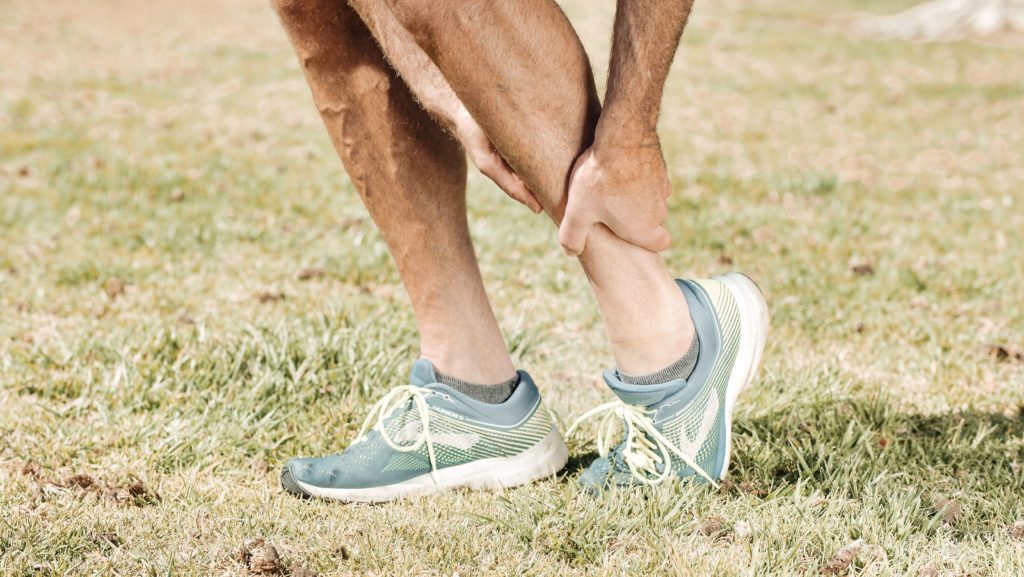A bone stress injury is one of the injuries feared most by runners and with good reason – they require extensive time off for healing and recovery. By understanding common risk factors, you can stay healthy and prevent this distressing diagnosis.
No runner wants to be sidelined by injury, even if it’s only for a few days. While soft tissue injuries can often be resolved with modified training and physical therapy, a bone stress injury typically require weeks away from running.
The best medicine is always prevention, and this is especially true with stress fractures. While there is ongoing research about the factors that can contribute to bone injuries, there are many known ways to lessen your risk.
This week on the podcast we have a doctor who not only specializes in bone injuries, but is also a runner herself. Dr. Emily Kraus is the Clinical Assistant Professor at Stanford Children’s Orthopedic and Sports Medicine Center, specializing in Physical Medicine and Rehabilitation sports medicine. She researches bone stress injuries at Stanford’s Healthy Runner Project, which is focused on bone stress injury prevention in collegiate distance runners.
Dr. Emily Kraus on Bone Stress Injuries
Emily is an expert on running injuries, stress fractures, and RED-S (Relative Energy Deficiency in Sport). In addition to her research, she performs gait analysis at the Stanford Run Safe Injury Prevention Program and serves as a medical advisor for the Adaptive Sports Injury Prevention Program.
Emily’s passion for working with runners stems from her own love of running. She has completed multiple marathons including Boston, as well as a 50km ultramarathon. With a recent marathon PR of 2:50, Emily is both incredibly knowledgeable and fast!
During the podcast Emily and I discuss all aspects of bone stress injuries, including:
- The difference between stress reactions and stress fractures, and the most effective way to diagnose a bone injury
- Risk factors for bone injuries, including those that are running-specific and diet-related
- What is RED-S, who is at risk, and how it relates to stress fractures
- The treatment and recovery process for bone injuries
- Prevention strategies to avoid stress fractures
This episode is a must for all runners who want to learn more about bone injuries and how to prevent them!
Subscribe to the podcast in iTunes, Spotify, Stitcher, iHeartRadio, or Google Play.
Links & Resources from the Show:
- Follow Emily on Instagram and Twitter
- Learn more about the Stanford FASTR Program
- Get stronger to help avoid injury
Thank You InsideTracker!

This episode is brought to you by InsideTracker, one of the most reputable blood testing companies in the world. They were founded in 2009 by aging, genetics, and biometrics scientists to help you analyze your body’s data and get a firm idea of how well you’re responding to training.
Understanding your body’s biomarkers, from stress hormones to testosterone to Vitamin D, can help you figure out if you’re over-training, under-training, optimally training, or if you have a health issue that might be affecting your running. But the best part is that they give you personalized optimal ranges for each of these biomarkers and a host of ways to improve these markers through diet, lifestyle, or exercise changes.
I’ve personally gotten three Ultimate tests from them and the process is simple, easy, and very eye-opening if you haven’t done a deep dive on your biomarkers yet. Of all the investments you can make in your running, this one is like getting a detailed checkup or regularly scheduled maintenance for your internal physiology.
If you’re ready to take control of your health and optimize your training, get 25% off any of their blood tests with code STRENGTHRUNNING at InsideTracker.
Thank you to our newest sponsor, the Spartan Race Series!
You’ve probably heard of Spartan Races – but you probably don’t know that they offer such a wide variety of types of races. From short to long-distance obstacle courses – and even ultra distances, to trail races, stadium races, and even city races in major metropolitan areas.
What I love about obstacle course races is that they are a great diagnostic tool to help you pinpoint what area of your fitness is lacking. Do you have a general aerobic deficiency? Do you struggle with upper body strength? Can you handle the stop and start nature of OCR’s? Do you have the mobility to perform the obstacles?
Signing up for a race that challenges you in a different way can help you find out more about yourself as an athlete. Ever since I tried my first obstacle course race in 2012, I’ve loved these events. They are demanding and require you to be a well-rounded athlete, something that I wholeheartedly endorse here on this podcast. Go to spartan.com to find a local race near you. If you’re in Colorado, I hope to see you on June 12th at the Colorado Springs Spartan Race.
